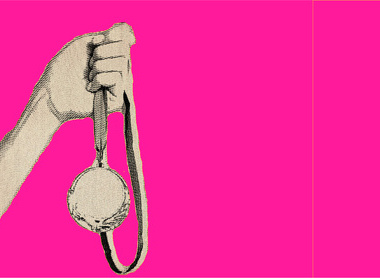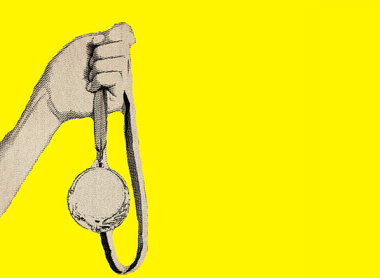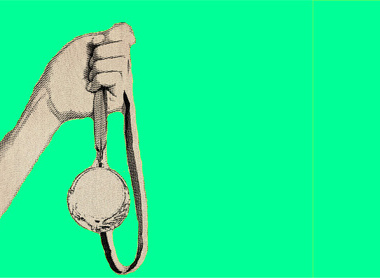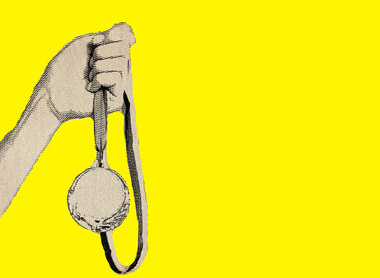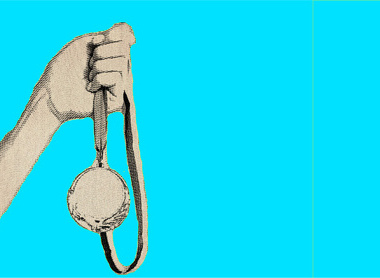
The President's Medal was instituted in 1985 to acknowledge and encourage the contributions of the next generation of experimental biologist researchers. In more recent years, the criteria have been broadened to encompass researchers in the early to mid stages of their careers, irrespective of age. This inclusive approach recognises diverse career trajectories, accommodating individuals who have navigated career transitions and breaks. The President's Medal is now an annual accolade for those within the first ten years post-graduation from their highest degree level.
 Overview
Overview
The SEB President's Medals are awarded annually to four young scientists of outstanding merit, one per section of the Society (Animal; Cell; Plant; Outreach, Education and Diversity (OED)). Winners are invited to speak at the SEB Annual Conference.
To nominate someone for a President's Medal, you must fill out the short form, giving the name and email address of your nominee and a few sentences with the reason for nomination. The SEB will then contact your nominee and request they fill out a form with additional details that will be used in the judging process.
You do not need to be an SEB member to nominate someone for the award and can put forward as many nominations as you like, however, we do not accept any self-nominations.
Nominees do not have to be members of SEB at the time of nomination; however, if successful, they must be members at the time of accepting the award. They must also be available to give a talk at the SEB annual conference. To submit their application, the nominee will need to log in or create an SEB account.
Winners will be entitled to:
- Conference registration, including the awards dinner,
- Hotel and travel costs coverage.
- A medal.
To help winners of SEB awards in accepting their prizes, we provide the following support:
- Affordable childcare at our annual conference from as little as £10 per half-day
- Although in-person talks are preferable, we do have hybrid options available for those experiencing extenuating circumstances.
- We have a SEB hardship fund available, which can provide support on membership renewal costs in times of financial hardship
| Date | Action |
|---|---|
| February | Nominations open |
| Second to last Friday in October | Nominations close |
| From February to October | Nominees are contacted and asked to fill out a form |
| Late November/ early December | SEB to inform the medallist and runners-up of their successes |
Scroll down to see the nomination form, which will be available in February-October.
 Eligibility Criteria
Eligibility Criteria
Nominees must meet certain requirements to be considered for judging. These are:
- Time from PhD, normally no longer than 10 years*
- Nominees must agree to the SEB code of conduct and have no confirmed or potential impediment to their professional standing
- Nominees must be within the scientific remit of the SEB (animal, plant, cell) or the Outreach, Education and Diversity (OED) remit.**
- Nominations will only be considered that conform to the application guidelines, as applications will be judged solely on the nomination form
- Eligibility is open to anyone who has active SEB membership at the time of accepting the award; scientific section committee members may also apply but must abstain from judging if nominated.
* If a nominee falls outside of this time frame, the judging panel will still consider the application provided there is a justifiable reason. For example, if they have taken a career break, followed a non-traditional career path, are in part-time employment etc. Please make a note of this on the nomination form.
** The rules and forms for the scientific and the OED remits are different. Please check for specific information for each remit.
 Judging Criteria
Judging Criteria
Scientific Remits (Animal, Plant, Cell)
The SEB Presidents Medal has been given to “scientists of outstanding merit” who have “demonstrated excellence” in their field. Our definition of excellence includes all areas of a diverse and modern scientific landscape.
Judging is based on the following criteria:
- Scientific Excellence
- Scientific Impact
- Emerging leadership skills within the scientific community
- Contributions to the SEB
- Outreach and advocacy for experimental biology
- Personal Character/Professional Standing
If a situation arises where multiple nominees are judged by these criteria to have equal merit, the judging panel may also use the information provided on the application form to consider the nominees’ broader contribution to the experimental biology community.
Examples of relevant contributions could include, but are not limited to:
- Quality of publications and/or patents and/or software
- Independence
- Collaboration and teamwork
- Teaching/demonstrating
- Service on boards, committees or panels
- Peer-reviewer
- Other indicators of esteem indicated by the nominator/referee
Winners will be invited to speak at the SEB Annual Conference. If an in-person talk is not possible, the SEB will do its best to accommodate this. However, if no arrangement can be made, another finalist may be offered the President's Medal.
OED Remit
The SEB Presidents Medal has been given to “scientists of outstanding merit” who have demonstrated a sustained record of high-quality and extensive impact work within outreach, education and/or diversity.
Judging is based on the following criteria:
- Relevance and novelty
- Engagement and impact
- Contributions to the SEB
- Personal Character/Professional Standing
If a situation arises where multiple nominees are judged by these criteria to have equal merit, the judging panel may also use the information provided on the application form to consider the nominees’ broader contribution to the experimental biology community.
Examples of relevant contributions could include, but are not limited to:
- Quality of publications, resources, software, teaching and/or projects
- Independence
- Collaboration and teamwork
- Teaching/demonstrating
- Service on boards, committees or panels
- Peer-reviewer
- Other indicators of esteem indicated by the nominator/referee
Winners will be invited to speak at the SEB Annual Conference. If an in-person talk is not possible, the SEB will do its best to accommodate this. However, if no arrangement can be made, another finalist may be offered the President's Medal.
 Who are the Judging Panels?
Who are the Judging Panels?
Scientific Remits (Animal, Cell, Plant)
The judging panel is made up of the relevant scientific section committee, depending on the application. The SEB has three scientific sections: Animal, Plant, and Cell, which are assembled by the Section Chair, Convenors of the sections' interest groups, and a co-opted member.
OED Remit
The judging panel is made up of the three scientific section chairs (Animal, Cell and Plant). If they are not available, the deputy chair will judge the entries instead.
 Judging Process
Judging Process
- A nominator fills out a short form listing the name and email address of the nominee along with a short 1-2 sentence statement on why they have selected the nominee
-
The SEB will email the nominee, informing them of the nomination and providing a link to an application form
-
The nominee will fill out this form containing questions that are guided by the judging criteria
-
The judging panel will receive all completed forms and judge them based on a scoring system against the aforementioned criteria
-
The top three finalists will be notified by email and congratulated on their shortlisting. We may ask if we can use their name in any award publicity
-
The top finalists (up to three) including the winner are ratified at a meeting with of the SEB Section Chairs, President and Vice President. If no final decision could be made by the judging panel, this group will have the power to decide the final winner between the top 2 candidates at this stage.
-
The winner is informed and invited to speak at the SEB Annual Conference
 Considerations of the Judging Panel
Considerations of the Judging Panel
To help nominees submit applications with the best chance of success, we have outlined the primary judging criteria and examples of what the judges may consider as demonstrations that these have been met in the table below.
Nominees may not meet every consideration of the judges; these examples should be used as a guide, and you do not need to answer every question outlined. Equally, the list is not extensive, so please include anything you feel is important for the judges to consider, even if it is not included in these examples.
Scientific Remits (Animal, Cell, Plant)
| Criteria | Examples of questions the judges may ask or aspects for consideration |
| Scientific excellence |
|
| Scientific impact |
* "Scientific Impact" refers to the eventual impact of fundamental research as well as a direct impact of applied work. |
| Emerging leadership skills within the scientific community |
|
| Outreach and advocacy for experimental biology |
|
| Contributions to the SEB |
|
| Personal Character/professional Standing |
|
OED Remit
| Criteria | Examples of questions the judges may ask or aspects for consideration |
| Relevance and novelty |
|
| Engagament and impact |
|
| Contributions to the SEB |
|
| Personal Character/professional Standing |
|
 Equality and Inclusion
Equality and Inclusion
The SEB has a continued commitment to ensure equality, inclusion, and diversity in all our activities. This includes recognising and rewarding scientists of outstanding merit from all backgrounds. To achieve this, we have:
- Made the nomination process easier to encourage more first-time nominators and expand the pool of nominees at the judging stage
- Made the judging process and criteria more transparent to allow nominators and nominees to submit applications that have the best chance of success
- Continued to encourage and normalise non-traditional career paths by allowing flexibility in the eligibility criteria regarding career stage and committed to highlighting role models from diverse backgrounds and career routes.
- Actively encouraged nominators to consider diversity on the nomination form and in any promotional material surrounding the awards
- Committed to proactively engage with other organisations, institutes, and societies in an effort to increase nominations from underrepresented groups
 Timeframe
Timeframe
| Deadline | Action: President's Medal |
|---|---|
| These awards are given to scientists at the beginning-mid career stage (usually no more than 10 years post PhD) of outstanding merit, one per section of the Society (Animal; Cell; Plant, Outreach, Education and Diversity (OED)). Winners are invited to speak at the SEB Annual Conference. | |
| February |
Nominations open Section chair and convenors to engage with attendees and membership at the Annual Conference to encourage submissions for nominations |
| March |
Section chair and convenors are to approach their interest groups for nominations. An email, on behalf of the Section Chair, will also be sent out to all members of the relevant section. Anyone (members and non-members) has the opportunity to nominate young scientists. |
| Second to last Friday of October | All nominations must be received by this date via the president medallist nomination form in SEB website. |
| From February to October | Nominee’s are contacted and asked to fill out a form. Please check “Nomination form”. |
| Late October | Section committee members are asked to rank all nominees based on their application forms and using the judging criteria table. Three finalists will be selected from compiled rankings for each section. |
| November Section Meetings (second or third week of November usually) | President’s Medallist is decided, if there is a tie and no agreement can be reached, the SEB president, vice presidents and section chairs can decide between the top candidates. |
| Late November/Early December |
SEB President: Inform both the medallist and runners-up on their success. Event Manager: Draft letters for President and Section Chair approval and send them out on the President’s behalf. On acceptance of the medal, the medallist will be asked to provide the following details:
|
 Nomination Form Questions
Nomination Form Questions
ATTENTION!
For guidance, here are the questions you will find on the official Nomination Form.
To submit your application, please go to the official form (available from July-September) at the bottom of this page.
Initial Form (filled in by nominator)
The SEB President's Medals are awarded annually to four young scientists of outstanding merit, one per section of the Society (Animal; Cell; Plant; Outreach, Education and Diversity (OED)). Winners are invited to speak at the SEB Annual Conference.
For more information, please visit: https://www.sebiology.org/grants/award-listing/presidents-medal-award.html
Please fill out this short form to nominate a candidate for this award.
- Your name
- Your email address
- What is the name of your nominee?
- What is the email address of your nominee?
- Please explain in 1-2 sentences why you think this person should be awarded the president's medal.
Thank you for filling out a nomination form for the President's Medal. We will now contact your nominee and request they fill out a form with additional details that will be used in the judging process. You may also like to contact your nominee to let them know they will receive an email from us soon.
Secondary Form (filled in by nominee)
Congratulations on being nominated for the SEB President's Medal!
Please carefully read the information below and fill out the form for your nomination to be taken forward. The judging panel will use only the information you provide on this form to decide a winner.
The SEB President's Medals are awarded annually to four young scientists of outstanding merit (usually no longer than 10 years of PhD), one per section of the Society (Animal; Cell; Plant; Outreach, Education and Diversity (OED)). Winners are invited to speak at the SEB Annual Conference in the following summer.
You do not have to be a member of SEB at the time of nomination; however, if successful, you must be a member of SEB at the time of accepting the award. You must also be available to give a talk at the SEB annual conference.
Winners will be entitled to:
- Conference registration, including the awards dinner,
- Hotel and travel costs coverage.
- A medal.
To help winners of SEB awards in accepting their prizes, we provide the following support:
- Affordable childcare at our annual conference from as little as £10 per half-day
- Although in-person talks are preferable, we do have hybrid options available for those experiencing extenuating circumstances.
- We have an SEB hardship fund available, which can provide support on membership renewal costs in times of financial hardship
To help you submit an application with the best chance of success, we recommend you read "Considerations of the Judging Panel". This section outlines the primary judging criteria and examples of what the judges may consider demonstrations these have been met. Nominees may not meet every consideration of the judges; these examples should be used as a guide, and you do not need to answer every question outlined. Equally, the list is not extensive, so please include anything you feel is important for the judges to consider, even if it is not included in these examples.
For more information, please visit https://www.sebiology.org/grants/award-listing/presidents-medal-award.html
Scientific Remits (Animal, Cell, Plant)
- Please confirm that you do not have any confirmed or potential impediment to your professional standing. (Checkbox - mandatory)
Hint: We expect all parties engaging with the activities of the SEB to treat colleagues fairly and with respect in line with the SEB code of conduct.
- Do you adhere to the SEB code of conduct? (Checkbox - mandatory)
- Please explain how your work demonstrates scientific excellence. (Text box with 500-word limit - mandatory)
Hint: How is your research innovative, original and contribute to the field or/and wider scientific community?
- Please explain the impact has your research made or is expected to make in your field? (Text box with 500-word limit - mandatory)
- Please explain how you have demonstrated emerging leadership skills. (Text box with 500-word limit - mandatory)
Hint: For example, do you lead and encourage students or colleagues? Or have you organised any events or chaired a session at a conference?
- Please describe your connection and contributions to the SEB? (Text box with 500-word limit - mandatory)
- Please describe your contributions to outreach and advocacy for experimental biology. (Text box with 500-word limit - mandatory)
- Is there anything else you wish to add? (Text box with 500-word limit - optional)
OED Remit
- Please confirm that you do not have any confirmed or potential impediment to your professional standing. (Checkbox - mandatory)
Hint: We expect all parties engaging with the activities of the SEB to treat colleagues fairly and with respect in line with the SEB code of conduct.
- Do you adhere to the SEB code of conduct? (Checkbox - mandatory)
- Please upload a supporting statement describing your work and its impact. (Upload - mandatory)
Hint: Please describe your outreach, education and/or diversity work in the experimental biology field and the impact it has had. If you have been involved with SEB activities, please also include this information.
- Is there anything else you wish to add? (Text box with 500-word limit - optional)
Nominate someone for a President's Medal
The nomination form will be available during the nomination period: from January to October.

